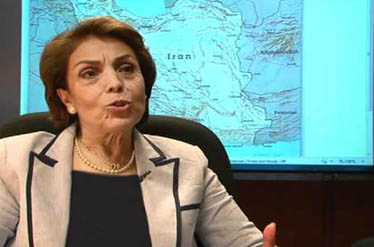Qatar crisis has affected Saudi-Turkish relationship: Georgetown Uni. prof.

TEHRAN - According to a professor of political science at Georgetown University in Washington, D.C., the United Sates lame attempts to distance Iran from the Persian Gulf states is falling through following the Qatar crisis.
“The United States' main concern is that Qatar-Persian Gulf crisis and its repercussions are weakening its policy of Iran's isolation by splitting the [P] GCC states,” says Shireen Tahmaasb Hunter in her recent interview with the Tehran Times.
Professor Hunter, who has also taught courses at George Mason University, and Washington College, believes that the crisis in Doha has also left traces in the Saudis relationship with Turkey.
“The Qatar issue has also created tensions in Saudi-Turkish relations that America finds harmful. Thus it wants the dispute settled so that all PGCC states turn their attention to Iran.”
Following is the complete text the interview:
Q: A summit is scheduled in May in the US where the Emir of Qatar, crown prince of Saudi Arabia and crown prince of the UAE are going to meet over the Qatar crisis. Can the conference bring solution to the disputes between the Persian Gulf Arab states and Qatar?
A: The mere arranging of a summit meeting, does not mean the resolution of Qatar's problems with Saudi Arabia and the UAE. Saudi Arabia and the UAE's problems with Qatar have many sources. A very important factor is Qatar's desire to pursue its own independent foreign policy that, at times, may be different with those of Saudi Arabia and the UAE. Qatar also does not want to play second fiddle to Saudi Arabia and refuses to be dominated by it. This means that for the summit to be successful, Saudi Arabia and the UAE should make some compromises and allow Qatar some room to act independently form their wishes. However, the U.S. participation might enable the two sides to make the necessary compromises. The question is which side will make the most compromise. This would largely depend on America. If it continues to unconditionally support Saudi Arabia, it would make it difficult for Qatar. Bu by the same token, America might force Qatar to accept Saudi conditions.
Q: US Secretary of State Rex Tillerson has said that the aftermath of the crisis in the Persian Gulf region is not only limited to the Arab countries but its ripple effect will be also felt in the United States. What kind of losses is the United States anxious about?
A: The United States' main concern is that Qatar crisis and its repercussions are weakening its policy of Iran's isolation by splitting the [P] GCC states. The Qatar issue has also created tensions in Saudi -Turkish relations that America finds harmful. Thus it wants the dispute settled so that all [P] GCC states turn their attention to Iran.
Q: Qatari Foreign Minister Mohammed bin Abdul Rahman Al Thani has said that Qatar is ready to attend the summit. However, he argued that Doha is not willing to accept the conditions put down by the Saudis and also demanded resolving of the crisis on the basis of equal footing between the participating states. Can we see an end to the Qatar crisis?
A: Qatar cannot refuse an invitation from the United States. Therefore, it will attend the summit. Whether it will be able to achieve some of its goals, including a promise that it will be treated with more respect by the Saudis and the Emiratis is hard to predict. A lot would depend on American attitude. Would America be willing to pressure Riyadh and Abu Dhabi to moderate their position on Qatar? In view of the fact that America is counting on Saudi Arabia to help it resolve some Middle East issues such as the Arab-Israeli conflict, it is unlikely that it would pressure it too much in this regard. More likely, The U.S. will try to convince Qatar to be more flexible.
Q: Of the 13 terms and conditions set up by Saudi Arabia and its allies for Qatar, which ones may Qatar have to accept?
A: In practice, Qatar has already accepted some of these conditions, such as stopping help to terrorists, which mean the Muslim Brotherhood and some groups in Syria. I think, most pressure will be brought on Qatar to downgrade its relations with Iran, and align its policies in the region with those of Saudi Arabia and the UAE. Issues such as the closure of Al Jazeera are secondary, although the Saudis will demand that the network should not air any anti-Saudi items.
In the final analysis, the success of the summit will depend on the skill of American diplomacy and its willingness to pressure both sides rather than side with Saudi Arabia.
